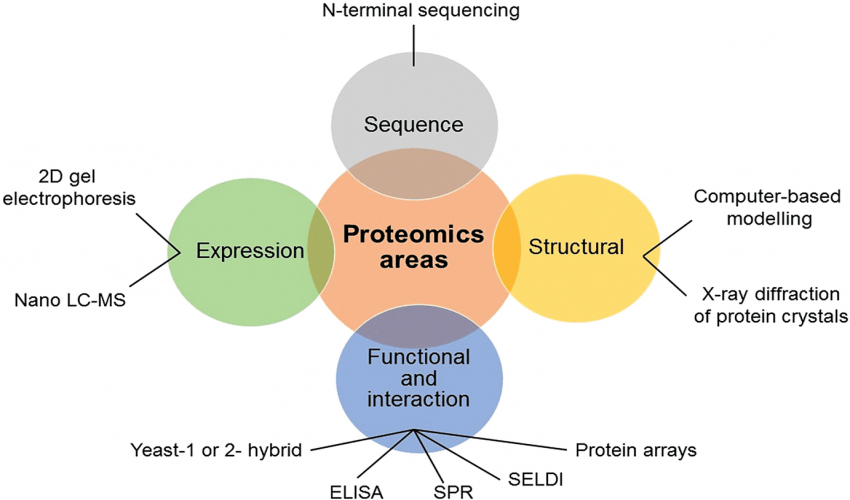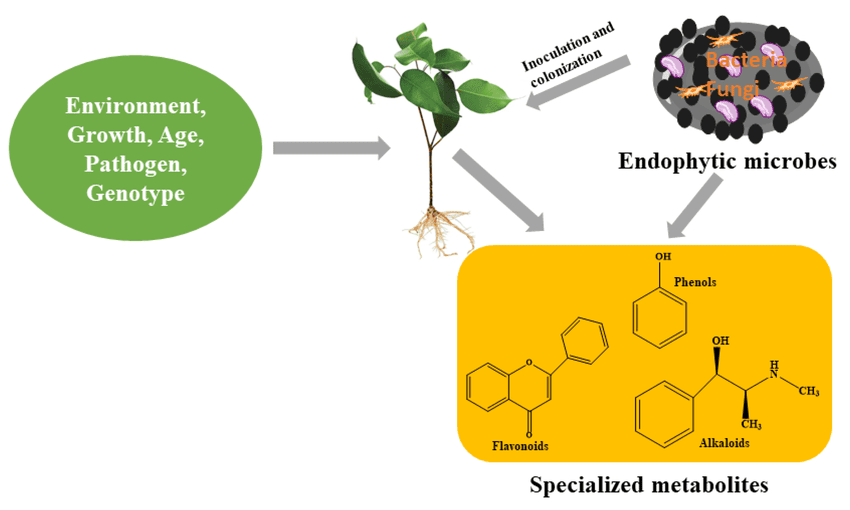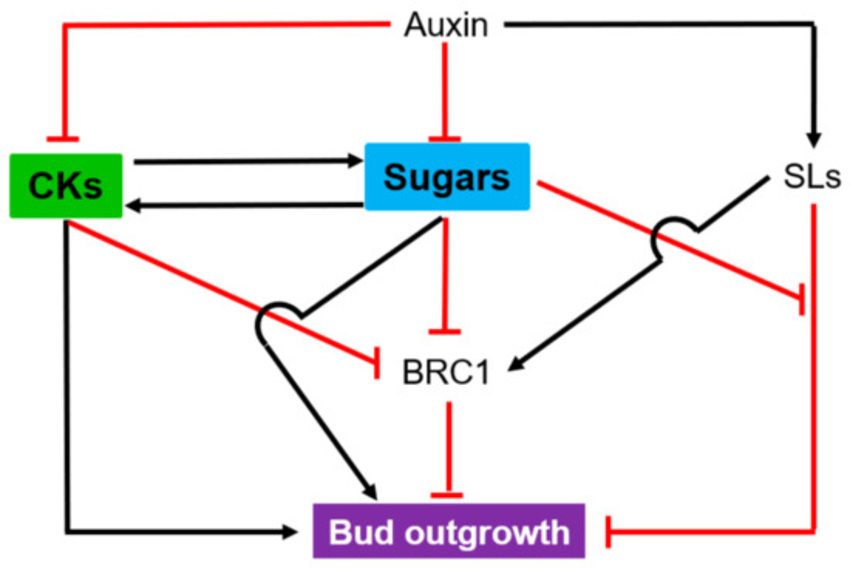
Proteomics
Proteomics is the large-scale study of proteins. Proteins are vital parts of living organisms, with many functions. The proteome is the entire set of proteins that is produced or modified by an organism or system. Proteomics has enabled the identification of ever increasing numbers of protein. This varies with time and distinct requirements, or stresses, that a cell or organism undergoes. Proteomics is an interdisciplinary domain that has benefitted greatly from the genetic information of various genome projects, including the Human Genome Project. It covers the exploration of proteomes from the overall level of protein composition, structure, and activity. It is an important component of functional genomics.
After genomics and transcriptomics, proteomics is the next step in the study of biological systems. It is more complicated than genomics because an organism's genome is more or less constant, whereas proteomes differ from cell to cell and from time to time. Distinct genes are expressed in different cell types, which means that even the basic set of proteins that are produced in a cell needs to be identified.
In the past this phenomenon was assessed by RNA analysis,
but it was found to lack correlation with protein content. Now it is known that
mRNA is not always translated into protein, and the amount of protein produced
for a given amount of mRNA depends on the gene it is transcribed from and on
the current physiological state of the cell. Proteomics confirms the presence
of the protein and provides a direct measure of the quantity present.
- Protein folding & misfolding
- Gel-based proteomics
- Protein extraction and quantification
- Two-dimensional gel electrophoresis (2-DE)
- Chromatography technologies
- Liquid chromatography
- Mass spectrometry: Ionization sources
- Mass spectrometry: Mass analyzers
- Hybrid mass spectrometry configurations
- In-gel & in-solution digestion
- Quantitative proteomics
- Advancement in Proteomics
Recent Published
Submit Manuscript
To give your manuscript the best chance of publication, follow these policies and formatting guidelines.


